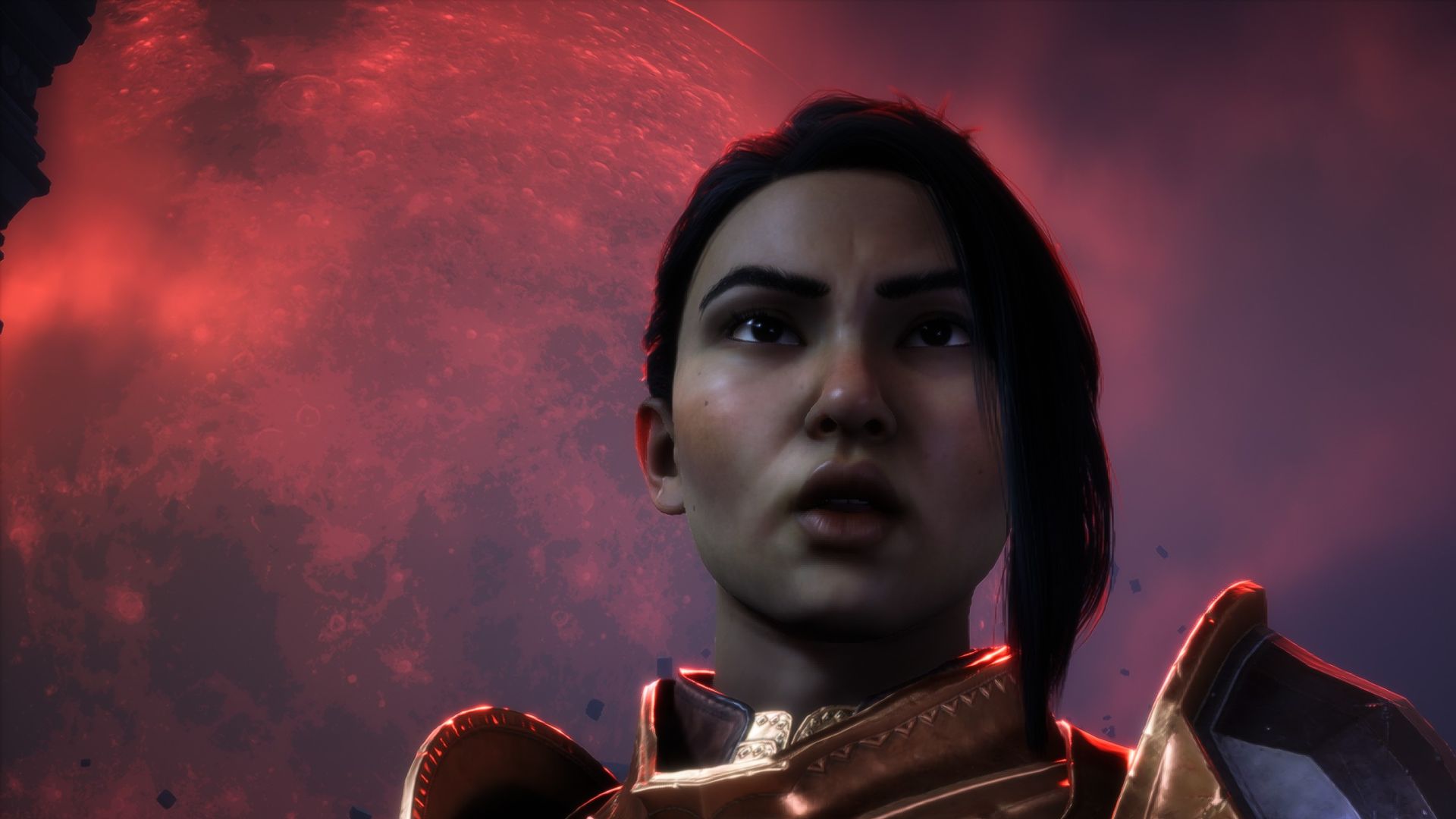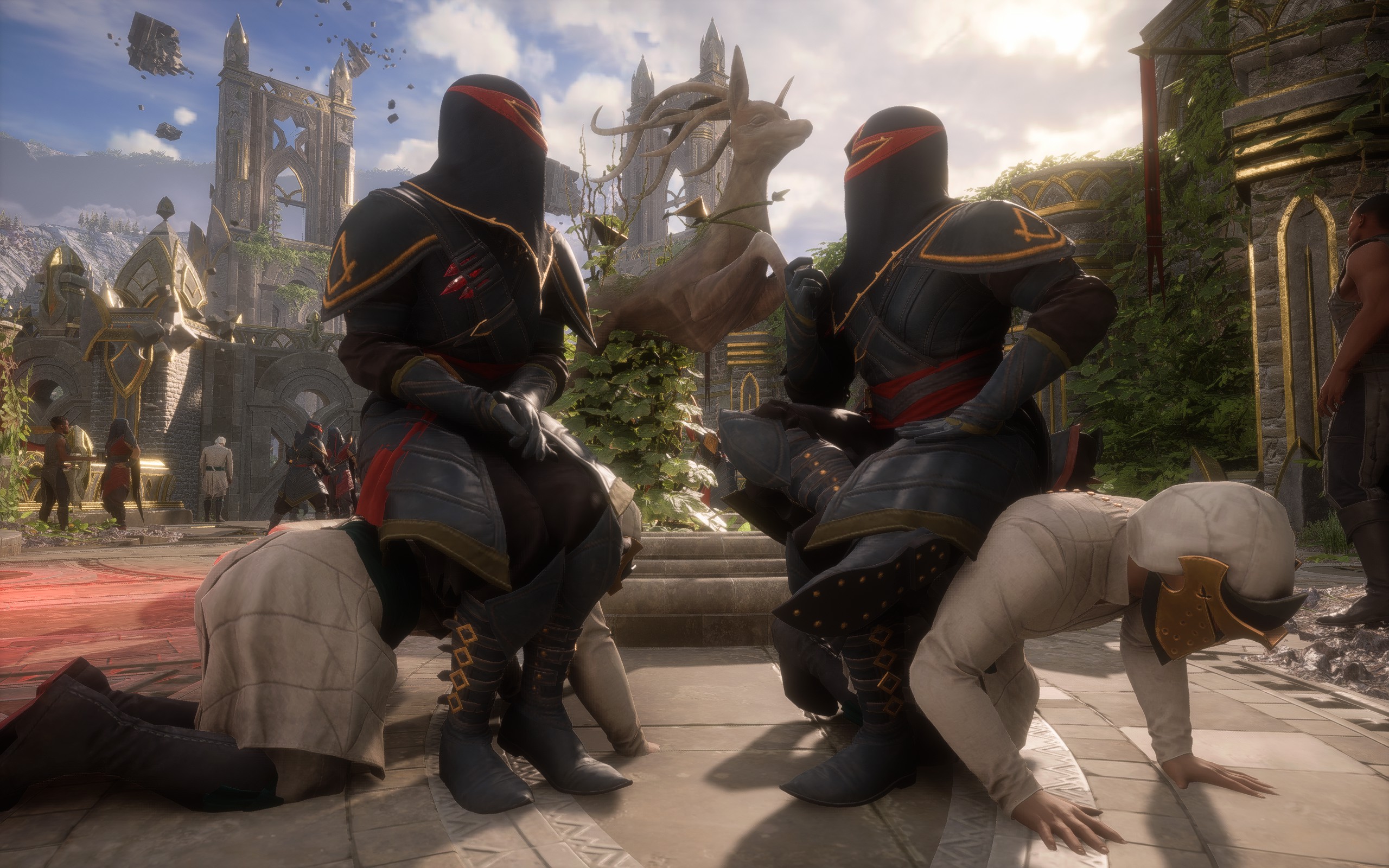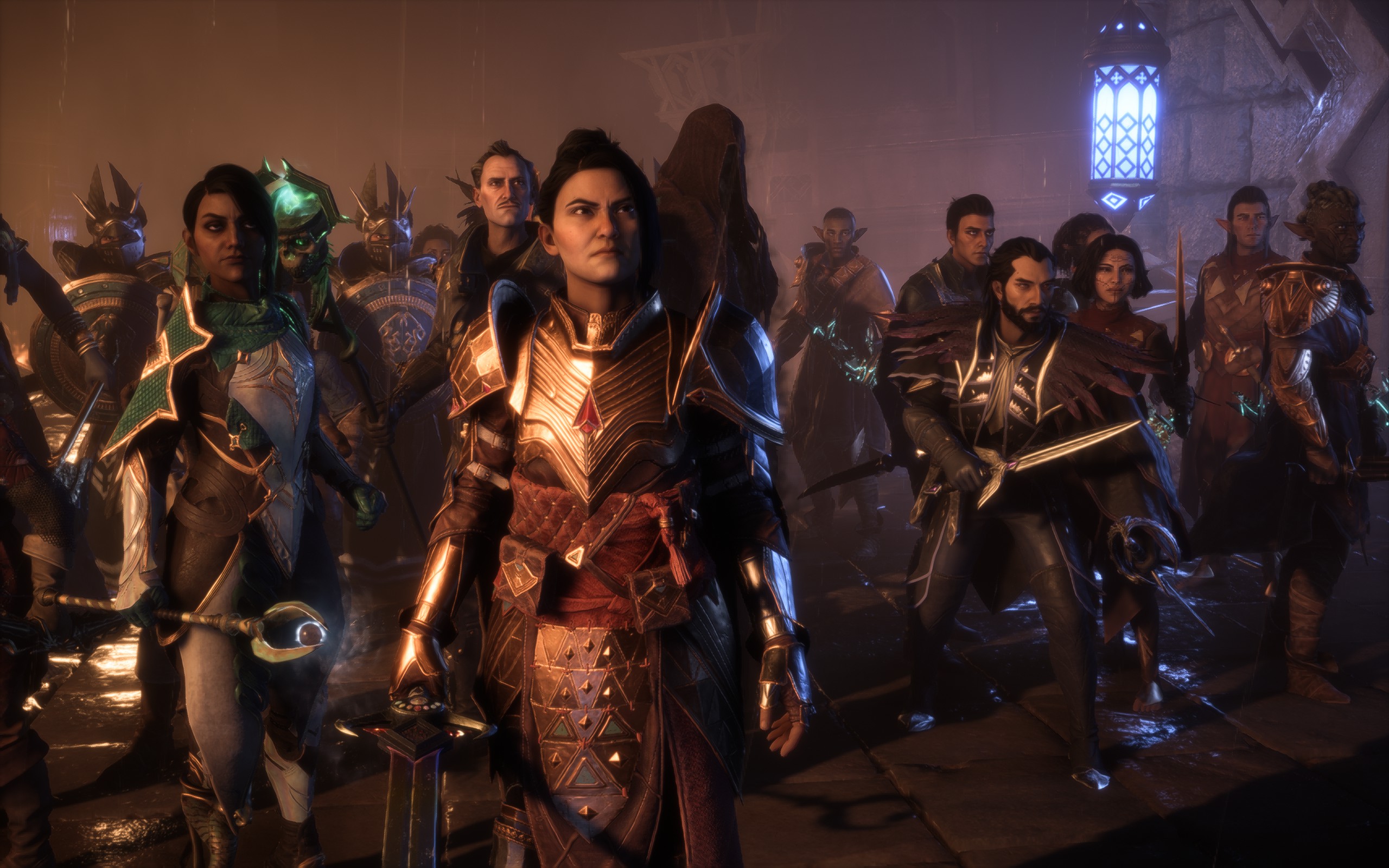I'm glad I stuck with Dragon Age: The Veilguard, because it builds to a suicide mission right out of my beloved Mass Effect 2
The Dragon Age: The Veilguard defender has logged on.

The YouTube algorithm keeps threatening me with videos about how the new Dragon Age is a crime against Gamers. I haven't watched any of them, but my recommendations still overflow. Even people with less overheated opinions have been down on its relatively chill vibes and easygoing nature.
Just quietly, I've enjoyed most of my time with it.
Not all of it, of course. Like too many BioWare RPGs, Veilguard frontloads its least interesting companions. This time the Carth Onasi you have to suffer before you're allowed to hang out with the cool kids is Neve, a detective whose schtick is being Sherlock Holmes without the deductive grandstanding, drug addiction, or ability to put emphasis on words. She seems way less fun at parties.
It didn't take long before I met more memorable companions, though—a Grey Warden slash full-time griffin dad, a surly qunari hyperfocused on dragons, and a necromancer who acts like Vincent Price hosting The Muppet Show.
The locations open up too, loads more than I was expecting them too. BioWare had promised a more mission-focused structure to contrast with the open sprawl of Inquisition, and while there are no Hinterlands here I was surprised at how many times I returned to an early Veilguard zone, Arlathan Forest, and found it stuffed with newly accessible loot, puzzles, and sidequests. Of the later locations, the Hossberg Wetlands was a highlight—as upsettingly moist as the name suggests, recalling the mud and blood of Ferelden.
Where Inquisition sent you to Orlais to see a part of Thedas that wasn't defined by filth and the constant sound of barking dogs, Veilguard takes place even further afield in the northern half of the world. There are no alienages here. Sure, the main entertainment in Docktown is public hanging and the Venatori use slaves as chairs, but the edgelord dial has been turned way down since Origins.

Michael Moorcock wrote an essay once comparing high fantasy stories like The Lord of the Rings to Winnie-the-Pooh, saying both were basically lullabies for children "meant to soothe and console." That's because Moorcock, like George R. R. Martin, thought unrelenting grim-and-grittiness means realism, and that there was virtue in fantasy being realistic. Veilguard does not, and is better for it. Instead, it freely fluctuates between sentimental coffeeshop fanfic and Blight-tentacle horror as each scene dictates.
The biggest gaming news, reviews and hardware deals
Keep up to date with the most important stories and the best deals, as picked by the PC Gamer team.
The former is concentrated in the de rigueur loyalty quests. You help the necromancer come to terms with his mortality, and the assassin with his demonic possession and thirst for revenge, because despite all the setting's modernisms they haven't invented therapy in Thedas. Yet the reason you get all kumbaya with your Veilguard companions is so they'll be ready to risk their lives in a final suicide mission even more brutal than the one in Mass Effect 2.

I loved the ending of Mass Effect 2 and was baffled BioWare didn't repeat the trick in subsequent games. That format—where you face a challenge so tough you have to take the whole squad you've assembled over the course of the game and delegate tasks to match their skillsets—makes an ideal climax for an RPG. Did you pay attention to the way every war story Zaeed tells in Mass Effect 2 ends with a bunch of people he fought beside dying? I sure didn't! So when I cheerfully assigned him to command my second fireteam because he's an experienced veteran, one of my squadmates died.
BioWare finally realized that kind of high-pressure friendship exam makes for a more memorable climax than a choice between color-coded endings, so that's exactly what Veilguard builds to. The opening may be rough, with some on-the-nose dialogue and choppy pacing, but if like me you've been waiting for BioWare to do an encore where they play Suicide Mission (Reprise) since 2010, they heard us stamping at last. The YouTube algorithm may not know what I like, but BioWare finally figured it out.

Jody's first computer was a Commodore 64, so he remembers having to use a code wheel to play Pool of Radiance. A former music journalist who interviewed everyone from Giorgio Moroder to Trent Reznor, Jody also co-hosted Australia's first radio show about videogames, Zed Games. He's written for Rock Paper Shotgun, The Big Issue, GamesRadar, Zam, Glixel, Five Out of Ten Magazine, and Playboy.com, whose cheques with the bunny logo made for fun conversations at the bank. Jody's first article for PC Gamer was about the audio of Alien Isolation, published in 2015, and since then he's written about why Silent Hill belongs on PC, why Recettear: An Item Shop's Tale is the best fantasy shopkeeper tycoon game, and how weird Lost Ark can get. Jody edited PC Gamer Indie from 2017 to 2018, and he eventually lived up to his promise to play every Warhammer videogame.

